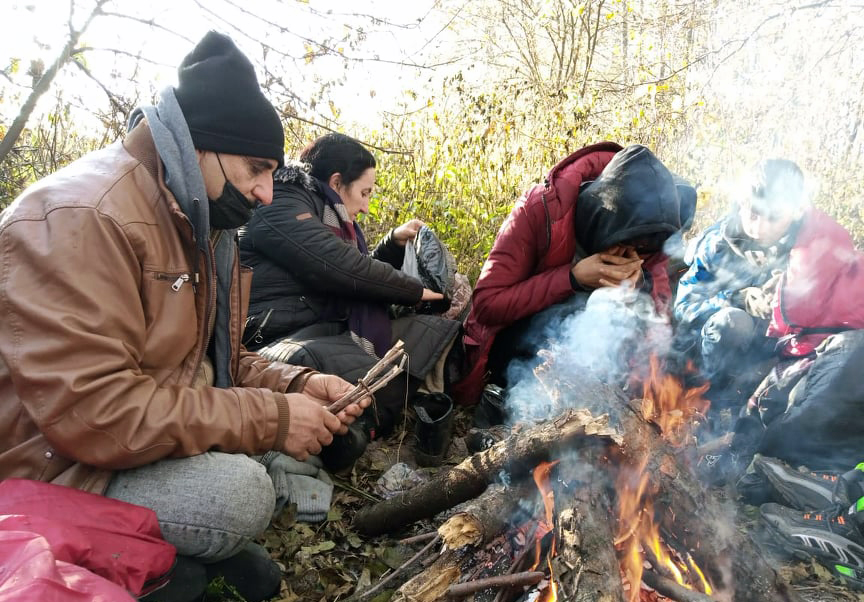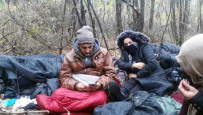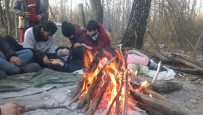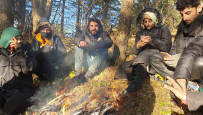Haji Darwish and his family returned to the Internally Displaced Persons IDP camp where they were living, heading to Europe yet they have spent two months of bitter cold and hunger in the jungles of Belarus, as well as the difficulties of the other illegal migration route.
On September 22nd 2021, Haji with his mother, wife and six children, three daughters and three sons, packed their luggage in the hope of reaching the heavens of Europe, and they left the Sharya IDP camp in Dohuk Northern Province towards Turkey.
“We were four Ezidi (Yazidi) families, we and another family from the same camp, a family from Shingal (Sinjar) and another from Kabartw DP camp, about 30 people. The hardships of life and the destruction befell to Shingal forced us to flee towards Turkey,” says Haji Darwish, 53 years.
Haji Darwish and his family were displaced from Shingal following attacks by the Islamic State in Iraq and Syria ISIL in 2014 and since then have settled in Shariya camp.
As hundreds managed to make it to Europe using this route few months ago, several thousand migrants, mainly Iraqis, are stranded along the border between Poland and Belarus since the European Union EU has rejected opening its doors to stop migrants using Belarus as a route to its borders.
Belarus has eased procedures for Iraqis to get Visa and allowed direct flights which urged people all over Iraq, particularly Kurdistan region, to fly to Turkey and from there to Minsk where they were taken by local smugglers to the borders with Poland.
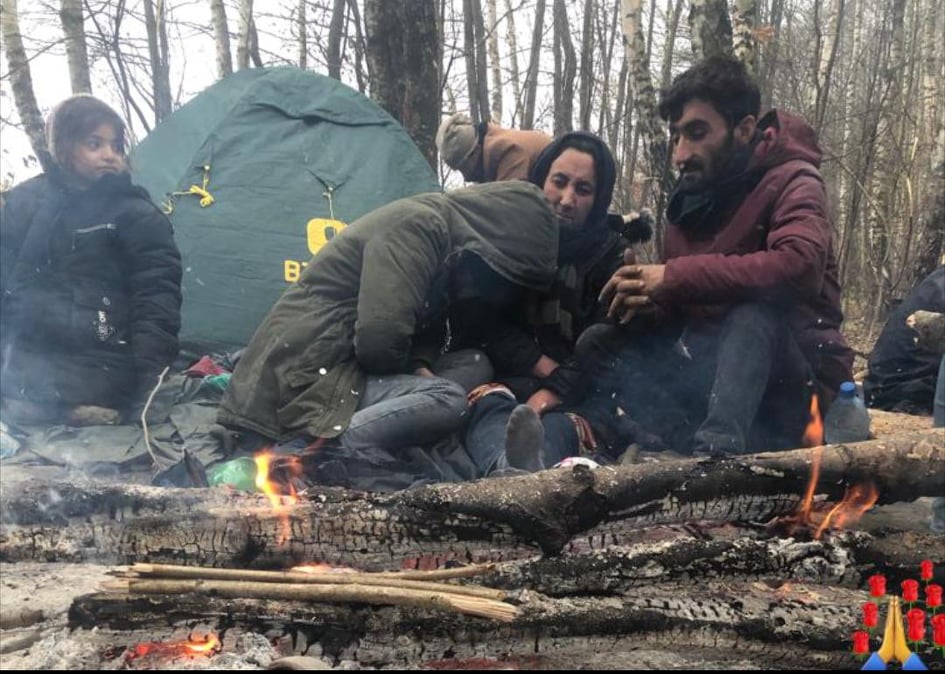
Belarus, November 2021: Haji Darwish’s wife and children in the forests of Belarus. Photo shared by Haji Darwish with Kirkuknow.
Those four Ezidi families stayed for 29 days in Istanbul, and after obtaining visas to travel to Belarus, they flew on October 20th to land in Minsk.
“We stayed for several days in that city, after that our family decided to go to the borders. We took two taxis and paid $300 for each. We finally reached a village near the Polish border, and from there we walked for three days until we reached the borders (with Poland). "
There is a wide area of forest on the border separating Belarus and Poland, and these forests are a corridor for migrants to cross to the border on foot, though it is unsafe and crossing it is not easy for children and the elderly like Haji Darwish's mother and some of his kids.
The youngest of Haji's children is 12 years old. For him, the situation is better compared to the hundreds of children who are with their families in the forests of Belarus.
Haji says that despite the extreme fatigue they were suffering from, on November 2nd
they tried to cross the border fenced with barbed wire, but Polish police and border guards arrested them.
I asked them to let us cross to Germany out of sympathy for my children and my 80-year-old mother, but in vain
"We begged the police too much. I begged them to let us cross to Germany out of compassion for my 80-year-old mother and children but in vain. They treated us in a rude and humiliating manner and took us in vehicles to a prohibited area within the borders of Belarus."
Belarus is bordered to the west by Poland, Lithuania and Latvia. Authorities in those countries deployed thousands of police and border guards to prevent migrants from crossing the border.
Haji Darwish's family was stuck at the border between Belarus and Poland. Neither the Belarusian authorities would allow them to return to Minsk, nor the Polish authorities would allow them to enter their lands to reach Germany.
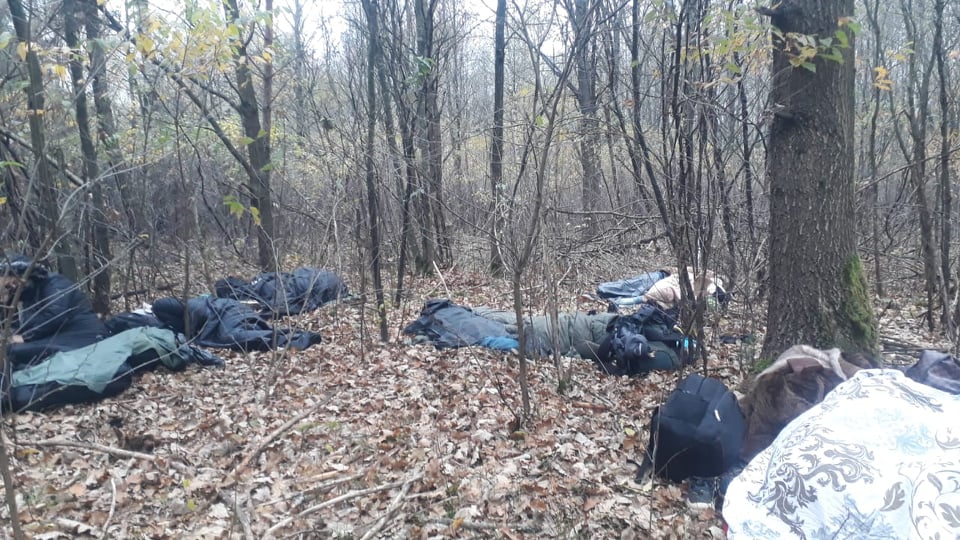
Belarus, November 2021: Haji Darwish family members sleeping inside sleeping bags in the Belarusian forests. Photo shared by Haji Darwish with Kirkuknow.
“We stayed for seven days in that place, we did not have enough food and drink to stay there for that long, the children were approaching the Belarusian police who sometimes gave them some biscuits or apples, we did not find anything to eat all that week, we suffered a lot, besides the extreme cold," he recalls.
Most of the day, temperatures in the Belarusian jungle is almost zero, and at night it is colder.
Thousands of refugees, mostly from Iraq, have been stuck for weeks in the Belarusian forests on the borders with Poland, Latvia and Lithuania.
"We asked the Belarusian police to take us to Minsk, but they did not accept until we paid them $100 for each person then they let us go."
Once they made it to Minsk, Haji Darwish and his family decided to return to Iraq.
My friends told me you went crazy. Where do you go back after all that effort and money you spent?
"My friends told me you're crazy. where are you going after all that effort and money? But I said I'd go back even if I had to pay $10,000 for a plane ticket?"
The Iraqi federal government, in coordination with Belarus, decided to allocate a plane to transport Iraqi refugees wishing to return for free.
“My family registered with the Iraqi embassy in Belarus to return and on November 18th, we arrived at Erbil International Airport,” Haji said.
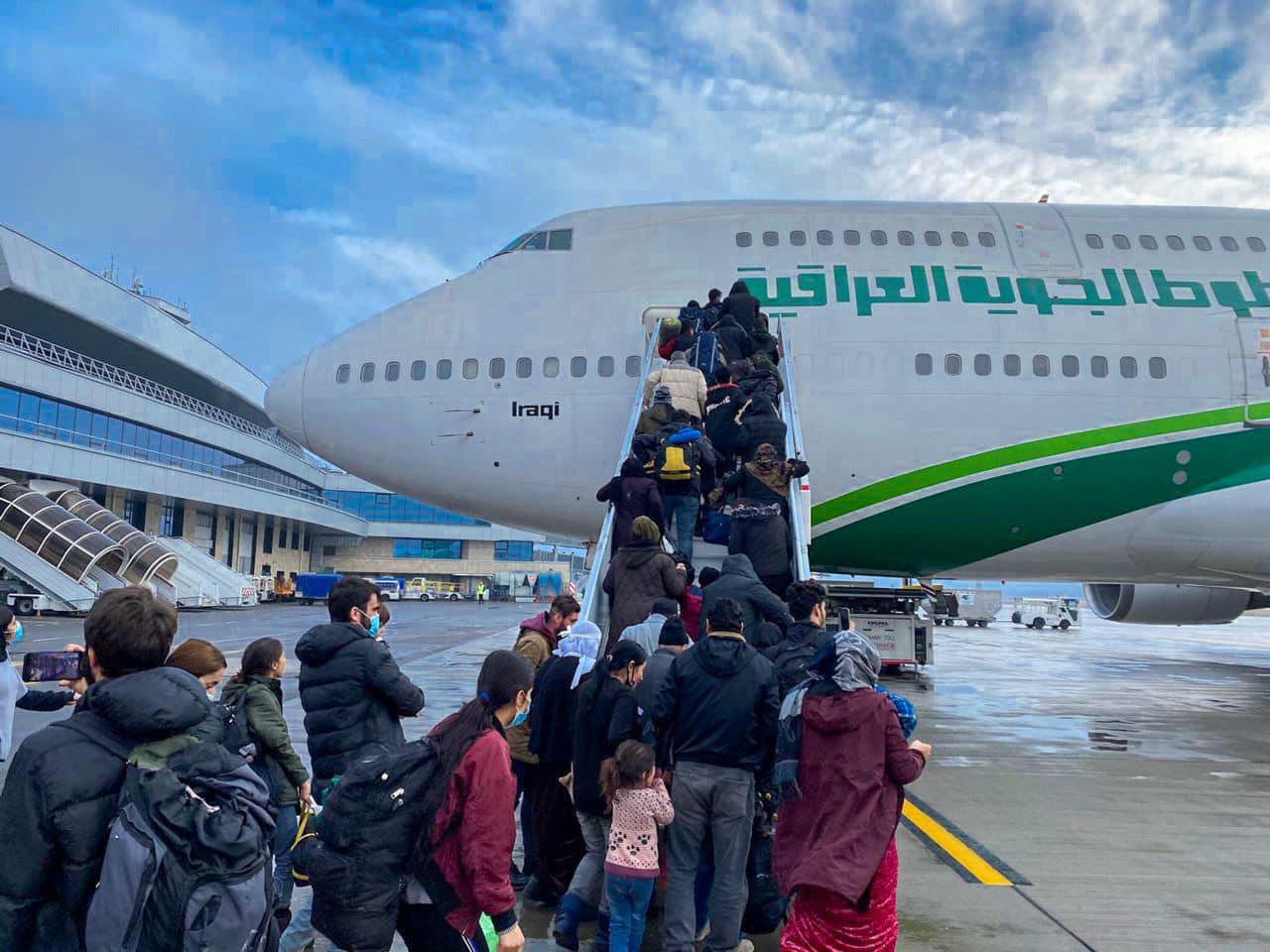
Belarus, November 18th 2021: The return of Iraqi refugees, including the family of Haji Darwish from Belarus via Iraqi Airways to the city of Erbil. Media of the Iraqi Ministry of Transport
A statement by the Iraqi Ministry of Transport indicated that 430 refugees were returned on that flight on November 18th from Minsk. In several similar trips, the number of returnees reached more than one thousand people.
What prompted Haji Darwish to decide to migrate was not unemployment or starvation. He is a retired employee of the Iraqi government and owns a car oil exchange shop near the camp.
“You can’t live seven years in a tent, we wanted to flee the inferno of the camp but we found ourselves in the middle of an even more cruel hell.”
According to the statistics of the Kurdistan Regional Government KRG, there are still more than 664,000 IDPs in the region, 30% of whom are Ezidis.
Haji Darwish family have spent more than 34,000 USD in their journey.
"It is true that I lost my money, my vehicle and much more, but I do not regret going and returning, I saw with my own eyes that humanity does not exist in European countries either, that trip was a useful experience for me."
The story of the journey of Haji Darwish and his family ended with their return to the same tent from which they set out two months ago.

